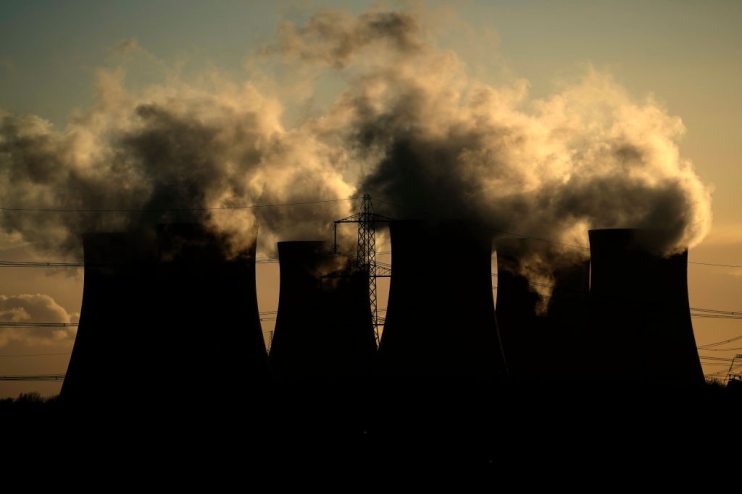Drax: Biomass energy giant which received £6bn from taxpayer reports 84 per cent earnings hike

Power generation firm Drax is the latest winner from the energy price crisis, with its earnings up 84 per cent in the last 12 months to £731m.
Drax, which received £6bn in green energy subsidies from British taxpayers over the last four-decades, was the latest energy giant to announce bumper profits; recent announcements include Shell (£32.2bn), Equinor (£23.8bn), EDF (£1.1bn), Centrica (£3.3bn) and BP (£23bn).
It is due to receive £800m this year.
Two MPs campaigning against its biomass subsidy urged the government to stop giving the company money, with one even accusing it of “greenwashing”.
The Yorkshire-based company reported its operating profit and profit before tax were both significantly down from 2021, while the company’s profit after tax was up at £83m, up from £55m.
Drax operates the country’s largest power station in North Yorkshire that provides 12 per cent of the UK’s renewable electricity, and claimed it is the largest source of renewable power by output at 11 per cent.
The firm is also home to two coal-fired power units which have been left on standby this year to help National Grid stave off blackouts over the winter amid a Russian squeeze on energy supplies.
Its chief renewables source is it 2.6GW biomass plant, which burns millions of tonnes of imported wood pellets to generate energy – providing around four per cent of the UK’s overall output.
It was however subject to a major BBC panorama documentary, accusing it of cutting down protected forests.
Brits have been struggling with their energy bills ahead of the falling of the price cap on 1 April. Ofgem will cap gas and electric bills at £3,294 from 1 April, according to Cornwall Insights’ forecast, but Brits are still expected to pay 20 per cent higher bills, as the cap only partially covers customers.
“Our renewable generation – biomass, hydro and pumped storage – are a major source of power in the UK and during periods of peak demand when there was low wind and solar power, these assets collectively supplied up to 70% of the UK’s renewable power in certain periods”, said Will Gardiner, CEO of Drax Group.
On BECCS, developing a pipeline of projects in the US targeting long-term large-scale carbon removal, he said the company “can become a world-leading solution for large-scale high-quality” removals, in its shift to cleaner energy.
“Drax stands ready to invest billions of pounds in the development of this technology and, following the introduction of the US Inflation Reduction Act, we are increasingly excited about the opportunities to deploy BECCS in the US.
“In response, the UK Government should accelerate its policy support for BECCS to make the UK a world leader in carbon removals, while attracting investment and delivering its net zero targets.
Reacting to the results, two leading MPs with the ‘Cut Carbon Not Forests’ criticised the government for backing the UK’s bioenergy reliance, while giving Drax a billion pounds a year.
According to a survey by the group, 62 per cent of the public think it’s wrong for the government to give subsidies to biomass energy production firms like Drax. 59 per cent disagree with funding it to fight climate change.
Tory MP Pauline Latham MP criticised her own party, saying the UK “pays significant sums in renewable energy subsidies to bioenergy companies making sizeable profits, despite it releasing huge amounts of greenhouse gases and harming forests’ ability to absorb carbon.
“This directly costs billpayers and families through their energy bills. In the context of the cost of living crisis, the Government should be looking into these subsidies and ensuring they are used for proven renewable energy sources and energy efficiency measures, rather than harming nature.”
Tommy Sheppard MP of the SNP, said; “It’s clear that the British public aren’t falling for the myth that biomass is carbon neutral, no matter how many greenwashing PR stunts companies like Drax pull to convince people otherwise.”
“Taxpayer money should be spent on real emission-free energy sources, not on technology that pumps more carbon into the atmosphere and destroys forests worldwide. Burning tees on an industrial scale for electricity does the latter. It’s time the UK Government listened to the public and end wasteful biomass subsidies.”
Drax has been asked for comment.
